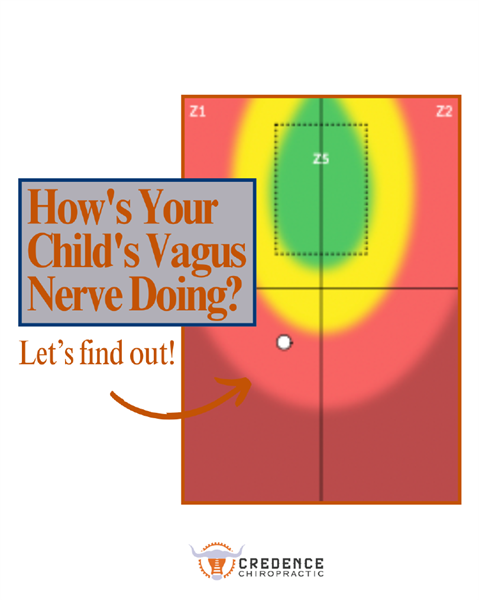Your Guide to Finding the Right Pediatric Chiropractor

Has your child seen a chiropractor, but the results fell short of your expectations? You're not alone. Many parents leave feeling disappointed—whether it's due to a lack of confidence or clarity from their chiropractor, weak or inconsistent care plan recommendations, or confusion over a long list of additional therapies added to the mix.
If that sounds familiar, keep reading to learn the key differences between standard chiropractic care, integrated or functional therapies, and truly specialized Neurologically-Focused Pediatric Chiropractic Care.
The Truth About Pediatric Chiropractic Care
Not all chiropractors are equipped to help children—especially those with complex neurological challenges like sensory processing issues, ADHD, or chronic health concerns.
Let me share a story about a young patient named Henry. He came to our practice after trying traditional chiropractic care without success. Henry struggled with intense sensory processing challenges—running full speed into walls for sensory input, having extreme reactions to clothing textures, and struggling with impulse control.
His previous chiropractor provided care, but without a neurological focus and proper frequency, Henry's underlying issues weren't being addressed. After just one month of specialized, neurologically-focused care, his mother noticed profound changes they hadn't seen before. His sensory-seeking behaviors became less intense and more manageable, and his overall regulation improved dramatically.
So what makes the difference? There are core components that determine whether your child is getting the right care. They may seem simple, but they make all the difference.
The 4 Critical Elements That Make Pediatric Chiropractic Care Effective
1. Advanced Education and Training
Most chiropractors have advanced training in spinal care, back pain, neck pain, etc. But taking care of kids requires specialized pediatric training that goes far beyond basic chiropractic education.
Today's children face what we call "The Perfect Storm"—unfortunately high levels of stress and toxicity building up early in their lives, contributing to the fact that over 50% of kids today are chronically ill or struggling with complex health conditions.
Advanced pediatric training includes a deep understanding of:
- Developmental milestones
- Nervous system function
- Brain development
- The gut-brain connection
- Neuroinflammation
- And much more
When your child's care provider has this specialized training, they're better equipped to address the root causes of your child's challenges rather than just treating symptoms.
2. Experience with Pediatric Cases
While many chiropractic practices may have "Family" in their name and see a few kids here and there, you're really looking for someone who is FULLY focused on Pediatric and Family Care and has extensive experience with complex cases.
An experienced pediatric chiropractor should have a track record of successfully working with children who have:
- Sensory processing challenges
- ADHD
- Autism
- Chronic conditions like ear infections or constipation
- And even more complex conditions like seizures or special needs
You're also looking for an office that is fully focused on kids in terms of the environment, layout, and approach—a place where your child feels comfortable and welcomed.
3. Advanced Technology and Neurological Testing
In 2025, it's essential that your child's chiropractor uses advanced technology like INSiGHT Scans to properly assess nervous system function.
These non-invasive scans take just 15-20 minutes yet provide more information on the real root cause of your child's condition than many other forms of testing. They allow practitioners to find nervous system dysfunction, dysregulation, and subluxation with precision.
Most importantly, these scans should be performed throughout care to track progress and ensure that real neurological change, healing, and restoration is happening.
4. Appropriate Care Planning
Today's children often need more intensive care plans than previous generations due to the increased neurological challenges they face.
A proper pediatric care plan should include:
- Frequency and duration based on neurological assessment, not just a standard "one-size-fits-all" approach
- Adaptability as your child progresses
- Regular reassessment to ensure optimal results
- Clear communication with parents about expectations and progress
Finding the Right Care for Your Child
If you're feeling frustrated with your child's current chiropractic care, or if you're just starting to explore options for your child's health, now is the time to make a change.
The right care can make all the difference—just ask Henry's mom, who saw transformation in her son after finding the right provider.
Your child deserves care that's specifically designed for their unique needs. With the right chiropractic care, you can give them the support they need to reach their full potential.
Remember, it's not that chiropractic doesn't work for children—it's that not all chiropractors are equally prepared to work with children, especially those with complex neurological challenges.
Taking the Next Step
If you're ready to explore this type of Neurologically-Focused Pediatric Chiropractic Care for your child, reach out to Credence Chiropractic today! We specialize in this specialized form of Neurologically-Focused Care and are here to make both you and your child feel comfortable, heard, and hopeful. If you are not local to us, check out the PX Docs directory to find a PX Docs office near you.
Your child's health journey deserves the best possible support. With the right care, we can help your child thrive—neurologically, physically, and emotionally.